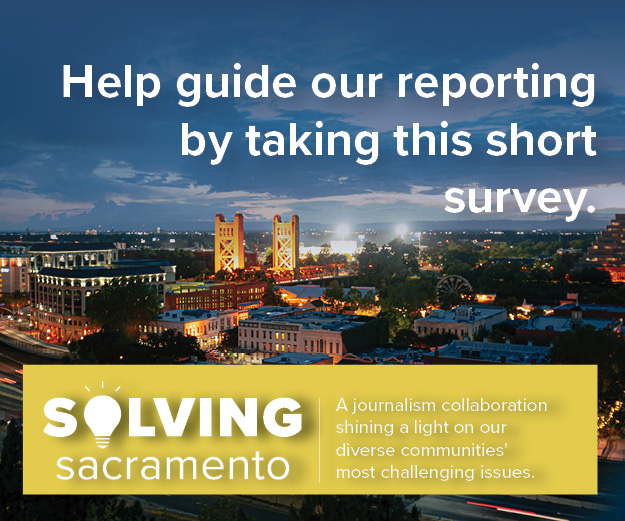By Ben van der Meer
Chione Flegal is executive director of Housing California, a nonprofit advocacy group on housing issues and a policy institute.
She recently spoke with us about California’s shortage of affordable housing and possible solutions.
So tell me more about your organization and what you do?
Housing California is a statewide organization. I like to say we’re working for homes, health and wealth for everybody. We tie together a network that focuses on addressing housing scarcity, homelessness and upholding economic and racial justice.
We also organize residents who live in affordable housing, which is about finding narratives that allow people to see themselves in solutions. And of course, there’s a whole bunch of advocacy at the state level.
We’ve had a few years where California’s housing shortage has been very prominent, with a lot of solutions and resources brought to bear on it.
Where are we at now, and what solutions do you see as having some success?
When we think about the challenges, there are a few different buckets. First, it is a persistent problem and a growing problem. We’ve seen more legislators call for solutions, but from our perspective, there can be a disconnect in talking about the issues and having the political will to create solutions.
The housing movement is not as aligned as it could be. There are a lot of silos from groups working on different aspects of it. That’s pretty disconnected to how people experience a problem. If you’re a renter and you’re concerned about tenants’ rights, then you might lose your apartment and you’re dealing with homelessness. The challenge is how do we build relationships and alignment in the housing sector.
But our biggest challenge is the lack of recurring funding at the scale of need. We’ve seen growth in solutions and programs, but we know we haven’t come close to the need.
Some years ago, we formed a partnership to ask, what would we need to solve this issue by 2030? The report that came out of that was that it would be an $18 billion investment a year. We’re pretty far from that now, when California is going into a shift of not having these (budget) surpluses.
Why is direct funding for affordable housing the way to go? What backs that up?
We know we need more housing, and that is a unifying theme. Certainly, there’s been phenomenal progress on land use challenges, but at the end of the day, affordable housing requires a subsidy. That’s a proven strategy. My staff always reminds me that the solution to homelessness is a home. And it’s not just funding for the home, but the services those residents need to stay stably housed.
Where do you see challenges right now that aren’t being addressed?
There’s a whole host of challenges tenants still experience. California took a big step with a statewide rent cap and other renter protections. We’d like to provide more comprehensive solutions, but we have policies that preclude that, like Costa-Hawkins (a state law that prohibits rent control for some kinds of housing). Also, there’s a body of work suggesting the right to counsel for tenants is important. We know tenants who have counsel are more likely to be successful in eviction hearings.
We’re also working on how to get people connected to housing when they encounter health care or other services. And we’re digging into taking existing housing that’s affordable and making it permanent, giving first right of refusal to people who live there to buy it, for example. We’d like to propose a statewide program to help land trusts and nonprofit developers to buy and preserve affordability on existing properties. We have a broad network of partners interested in that work.
I also think about how bank lending needs to change their criteria, so if someone buys a property with a loan, higher rents for the apartments aren’t assured. We know if you assume rents are going to go up 50% after the property is sold, people will be evicted.
Speaking broadly, how hopeful are you for more progress?
I think the point we always want to drive home is it takes all of us. There is no silver bullet to solve this. But when we come together, we can have an impact.
This Q&A has been edited for length and clarity.
This story is part of the Solving Sacramento journalism collaborative. Solving Sacramento is supported by funding from the James Irvine Foundation and Solutions Journalism Network. Our partners include California Groundbreakers, Capital Public Radio, Outword, Russian America Media, Sacramento Business Journal, Sacramento News & Review, Sacramento Observer and Univision 19.




Be the first to comment on "Housing California’s Chione Flegal on the ‘growing’ and ‘persistent’ lack of affordable housing"